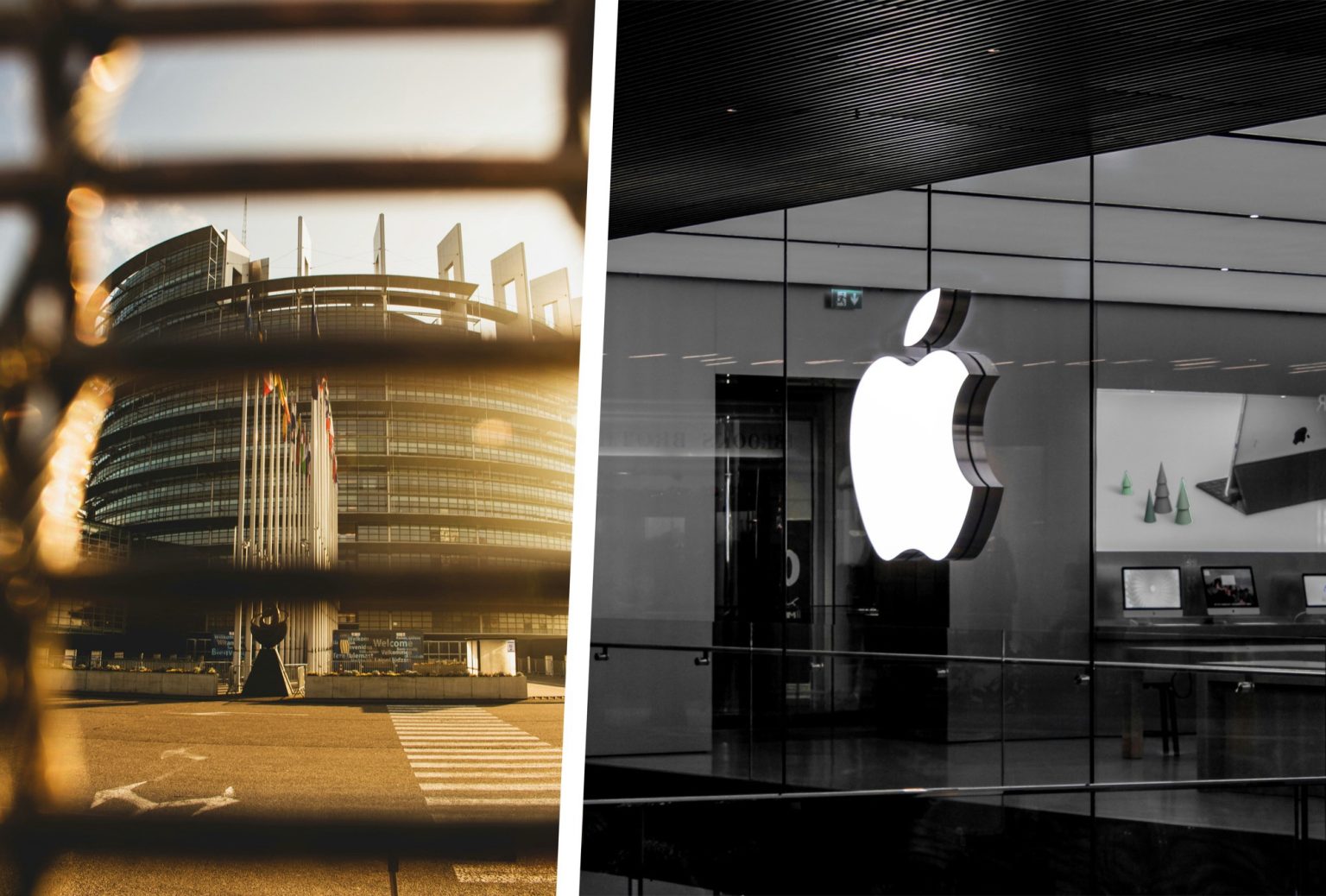Apple continues to clearly position itself against consumers. (Image source: Jorgen Hendriksen / Hussam Abd)Apple is fighting for its own wallet, against fair competition and against its own customers, using propaganda to deliberately incite consumers against the EU and to mislead them into advocating for the interests of mega-corporations rather than their own.
Views, thoughts, and opinions expressed in the text belong solely to the author.
People’s lives are now more dominated than ever by large corporations. Google and other social networks decide which news users see, Palantir plans to privatize mass surveillance, and Apple decides which apps can be installed on more than a third of all smartphones in Europe. In establishing the Digital Markets Act (DMA), the European Union is attempting to at least somewhat counteract the control of the US tech giants.
It’s working, albeit very slowly. This is not least because companies such as Apple are always looking for loopholes to retain as much control as possible over consumers and their money. For example, installing third-party app stores is now finally possible, but Apple not only deliberately makes this process cumbersome, but also has the power to even deactivate apps from other stores, contrary to the ideals of a free market.
Apple’s propaganda incites customers against the EU
Apple has been attempting to manipulate consumers into acting against their own interests for years in order to exert pressure on the EU. Just a few hours ago, Apple published a new propagandistic text in which it quite unabashedly blames the EU for the fact that features such as live translations, iPhone mirroring, and “Places Visited” in Apple Maps are not yet available in certain countries. In sum, the text reads as though “the EU is forcing Apple to sacrifice user privacy”.
In contrast, competing brands show that innovation and privacy protection do not have to be mutually exclusive. All the aforementioned features have been available on other platforms for years, including in the EU. Furthermore, Apple is currently planning to open up iPhone notifications to third-party smartwatches simply by adding an option in the system settings. So at least someone at Apple knows that giving customers a choice is an option instead of disempowering them and pretending that the EU is preventing innovative, new features from being available.
Apple criticizes the fact that it is forced to allow payment platforms from other manufacturers – is this about privacy or about the 30% commission that Apple could otherwise collect on payments? Another claim is that third-party app marketplaces contain dangerous apps – just like Apple’s App Store. It could hardly be more ironic that Apple claims the DMA is failing to achieve its goal of a more competitive market because already successful companies are twisting the rules to their own advantage. Time for Apple to take a hard look at itself.
Related Articles
Editor of the original article: Hannes Brecher – Senior Tech Writer – 18805 articles published on Notebookcheck since 2018
Since 2009 I have written for different publications with a focus on consumer electronics. I joined the Notebookcheck news team in 2018 and have combined my many years of experience with laptops and smartphones with my lifelong passion for technology to create informative content for our readers about new developments in this sphere. In addition, my design background as an art director at an ad agency has allowed me to have deeper insights into the peculiarities of this industry.
Translator: Jacob Fisher – Translator – 2249 articles published on Notebookcheck since 2022
Growing up in regional Australia, I first became acquainted with computers in my early teens after a broken leg from a football (soccer) match temporarily condemned me to a predominately indoor lifestyle. Soon afterwards I was building my own systems. Now I live in Germany, having moved here in 2014, where I study philosophy and anthropology. I am particularly fascinated by how computer technology has fundamentally and dramatically reshaped human culture, and how it continues to do so.
Hannes Brecher, 2025-09-25 (Update: 2025-09-25)












